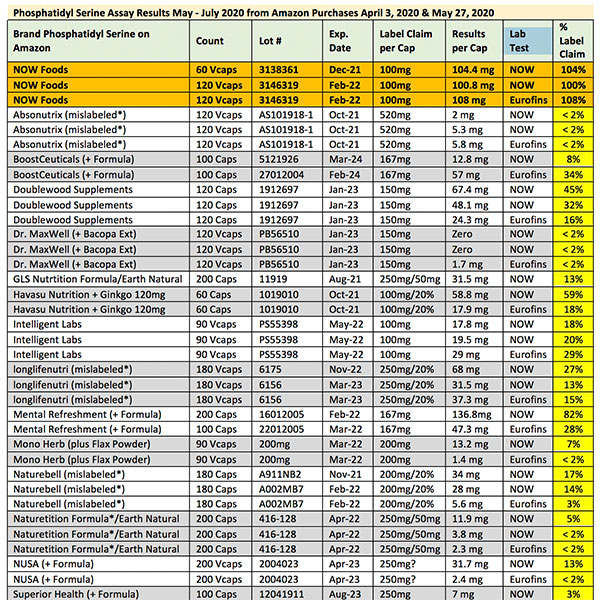There’s a lot to be said about succinctly responding to posts. These long rants on what is Ayurveda, adpatogens, etc, distract from you stating false things. You can call Ayurveda a pseudoscience if you wish (which is wrong, as ingredients such as Ashwagandha have good ole regular science to back it) but many ingredients commonly used in Ayurveda have published studies backing their efficacy, sooooo yeah. Not quite pseudoscience. At all.I'm not trying to poke holes in your studies, the first one looks very interesting, but it was paid for by the manufacturer of the supplement company who owns the patent for the product. So, that's one thing you have to take with a grain of salt.
If you Google Sensoril, you'll find other studies from the manufacturer claiming it cures bipolar, generalized anxiety disorder, "psychomotor performance", and other ailments. There are 2 big manufacturers of the Withanolide extract (ash), which is Natreon, which owns Sensoril and Sabsina, an Indian company that owns the patent to KSM66 and discovered ash originally. They sell a whole range of these "adaptogens", a term which I'm very skeptical of in general as it sort of means it can apply to anything and do anything. You can read the very short article on wikipedia regarding the terminology of adaptogens and why it's a problematic label for dietary supplements.
But back to ash, Sensoril uses a root and leaf extract of Withanolide whereas KSM-66 just uses the root extract. Generally, in "ayurvedic" medicine (another term and way of thinking I have a big problem with), ash just uses the root extract. Ayurveda is considered a form of pseudoscience like Chinese medicine, balancing your chi, Crystal Therapy, etc. So, the whole concept is based on an extremely flawed theory from the start. Now, that doesn't mean some of herbs and things that have come from the 'science' are all wrong, bad, or don't work. Ash seems to be an outlier in this area because it does appear to have some very positive benefits - but again, it's lacking serious studies on MANY of the claims being made for it.
But, let's get back to your studies. Both of them involve cycling, which isn't particularly applicable to bodybuilding, as cycling is an endurance race and has nothing to do with anabolism or hypertrophy of muscle tissue. So, the conclusion of one study is:
. That's all well and good, but again, it's not applicable to the sport we're interested in, unless you're coming here for advice on cycling or doing IronMan competitions or things like that.
The other study is much more compelling.
Now, the workout they did is a bit different than a typical bodybuilder workout. "Subjects were required to maintain their normal dietary habits and to follow a specific, progressive overload resistance-training program (4-day/week, upper body/lower body split)". We're never told what their normal dietary habits were, but they were doing a 4 day split of upper and lower body. Also consider the following "Using a placebo-controlled approach, 10 healthy participants were assigned to consume either a placebo or Ashwagandha (500 mg/day) for 10 days, and were assessed for changes in power, balance, and maximal oxygen consumption (VO2Max)."
So, we're only looking at 10 subjects over a 10 day period. That's a very small sample size and short study.
It's a very long read, and the results sound promising, but they would need to be replicated before you could consider this a valid reoccurrence. Again, not trying to poke holes, but that's just how we want to look at our supplements. Look at creatine for example. It's had literally hundreds of studies over the last 30 years all showing positive benefits with very few downsides.
Having said all that, if you want to take ash and you feel you get a positive benefit from taking it, I would encourage you to continue taking it, but look at the differences between the Sensoril product and the KSM-66 product. Right now, we mostly have anecdotal feedback of a comparison between these two products, and no head to head studies showing which is the best or most beneficial.
I can go on, but I think this post is long enough, so I'll leave it at that.
Honestly, you just keep pushing the goal posts back further and further. Many, many single ingredient supplements studies are done by the manufacturer. It doesn’t invalidate them. Who else is going to do them? Each OTC ingredient isn’t going to get the creatine treatment and have 100’s of studies. Sensori and KSM-66 have tons of studies done. More than most ingredients. This isn’t just some one off study. Furthermore, there is plenty of anecdotal evidence of efficacy. So taking published literature + individualized anecdote is about as good as you’re going to get in the supplement industry.
Point of my posts, you’ve made some “strong-and-wrong” comments. I’ve shown examples of why you’re wrong. I’m good to conclude this discussion at this point.


